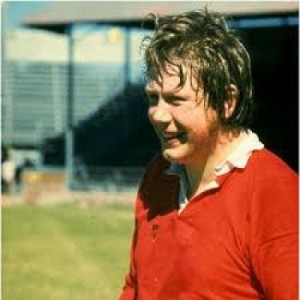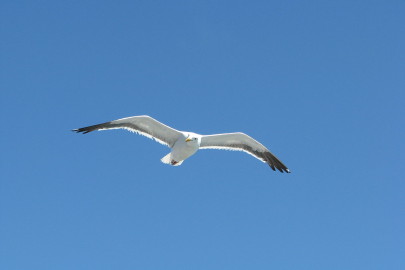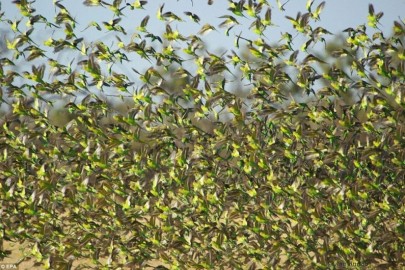On the eve of the 2012 Six Nations tournament, Gaw brings together his two loves: rugby and poetry…
We cannot look, however imperfectly, upon a great man, without gaining something by him. He is the living light-fountain, which it is good and pleasant to be near. The light which enlightens, which has enlightened the darkness of the world; and this not as a kindled lamp only, but rather as a natural luminary shining by the gift of Heaven; a flowing light-fountain, as I say, of native original insight, of manhood and heroic nobleness;–in whose radiance all souls feel that it is well with them.
Heroes and Hero Worship, Thomas Carlyle
We tend not to think in those terms any more, thank God. Our heroes are more earth-bound: grittier, more workaday, often flawed. However, there’s one area of life where Carlyle’s habit of thought persists, if not his high-flown language (though you do find the odd broadsheet columnist strays sometimes – mostly in The Times for some reason): in sport. I suppose it’s permissible here as we know that whilst it means a lot, it’s not really important.
Which makes it strange that there seems to be so little poetry extolling sporting heroes (though, admittedly, there is a lot of doggerel). After all, heroism has been a subject for poetry since at least as far back as Homer.
I thought I’d seek out some epically sporting verse after recalling today’s pick. Predictably, given it’s such a literary sport, I did find a few cricket ones – for instance, by CLR James (Pascall Bowled – boring at this distance, I’m afraid) and John Arlott (on Sir Jack Hobbs – I enjoyed it but it’s more about the nature of cricket than the nature of heroism). But that was it. Am I missing something?
If not, then I guess we should put it down to the very different places sport and poetry occupy in the culture. But if Max Boyce could pull it off…
Anyway, this weekend sees the start of the 2012 Six Nations rugby tournament and it features one of the oldest international sporting fixtures, England vs Scotland. Scotland aren’t what they were and haven’t been for a while; here’s a sonnet in which one Scot remembers another.
Gordon Brown
(Rugby player – “The Ayrshire Bull” – d 2001)Their gratitude for your career was such
That when some District prop in his narrow pride
Stamped on your head, and legged it into touch,
The Board banned you (that’s rugby suicide):
Who blew through London Scottish on the breeze,
When I’d been training with the fourths or thirds
And dreamt you said I’d like to meet him, please!,
Till someone drew me in, and we had words.
You knew two bits of Burns. Still you pretended
Poems would outlast what the British Lions did,
You, who had beaten Springbok and All Black;
And when you put your spare hand on my back
I felt at first a woman, then a kid,
And then a man, the thing you had intended.
That’s by the late Mick Imlah, one of the perhaps puzzlingly rare breed of literary men who also wrote about rugby. His hero (top) was a member of all three of the legendary British Lions touring sides of the 1970s. As you may have gathered he had what’s euphemistically known as an uncompromising approach to the game (though wasn’t too keen on training). Apparently, the “District prop” ran but was unable to hide, being thrown to the ground and soundly booted. And all for the fun of it…
His unyielding commitment, and never-say-die attitude allied with great skill and courage, assured his name would go down in history as one of the greatest forwards this country had ever produced. Any yet, in an age when sports stars can command salaries that resemble telephone numbers, the man known affectionately as Broon frae Troon did not make a penny from his world-class sporting talent…. the rugby legend left behind just 50,000, a sum many modern rugby union stars could expect to earn in half a season, never mind a lifetime [from here].












Didn’t Andrew Motion write some fairly awful piece about Jonny Wilkinson?
There’s also this:
http://www.youtube.com/watch?v=XW-7NswoWgc
Andrew “Lemsip” Motion did indeed write an ode to Jonny Wilkinson, and it was indeed awful (not “fairly awful”).
Mercifully, the only line I can remember is:
Oh Jonny, your boot…
Just found it. English rugby seems resistant to flights of fancy in so many ways. And this is one. Sample:
“And together with Clive
You will help us survive”
http://www.guardian.co.uk/sport/2004/mar/07/rugbyunion.features
I’ve read no Carlyle and so was surprised by that passage, which seemed more Dh Lawrence than ascetic Scot, (which was how, in my ignorance, I had imagined Carlyle to be).
Carlyle and Lawrence both have tendencies that seem a bit fascistic. Romantic twaddle.
It’s always bemused me that rugger types are so eager to reach for damp-eyed poetry when describing what is the most brutally violent ball game around. Encapsulated by the Sky commentator at one game not long ago crying “A kick for the Ages!” as a three-pointer sailed over. Football is nostalgic, as James Hamilton often pointed used to out on these shores, but it lacks rugby’s preposterousness. Cricket, on the other handy, is bleak existential poetry in (slow) motion.
I think your quoted bit of hyperbole comes via that Miles chap from Sky who tends to work with the similarly ridiculous Stuart Barnes. Then there are the portentous ‘ident’ thingies they keep playing, for instance about the Lions tours: all very silly. A bit like outtakes from Lord of the Rings.
The classic version of this twaddle comes via the commentary of Nigel Starmer-Smith (surely something of an ur-Nigel). I recall one of his favourite words was ‘valiant’. Used to drive me mad.
But there’s another less preposterous – indeed, entirely admirable – school, of course. Bill McLaren, John Taylor, Eddie Butler (note the lack of English public schoolboys, which may be entirely coincidental).
In an American context, “Six Nations” are the six nations of the Iroquois confederation, and one would expect a Six Nations tournament to involve lacrosse.
Americans tend to do the damp eyed thing much more around baseball than (American) football. Undoubtedly there have been sonnets written on the two sports, but good luck finding anyone who remembers much more than a few lines of “Casey at the Bat.” Essays you can get by pound.
Lacrosse – now that is a brutally violent sport. I wince.
Sorry Gaw, but if you are looking for speed and skill rolled into one field game, look no further than Hurling, a game from pre-history – softball, lacrosse and hockey distilled into one game for the valiant only. Get a hurley stick across your shins on a day like this, and you will wish you had taken-up formation swimming or shove ha’penny. Next time you are in Joyce’s Dublin (see Lazy Sunday tomorrow), try to catch a game at vast Croke Park (80K +), scene of Bloody Monday and a punch-up I saw 40 years ago between Blue Lewis and somebody called Muhammad Ali. I wasn’t there long.
Very apposite Gaw, as we prepare for this afternoons joust, us versus them, extra impetuous this time around (courtesy of A.Salmond) for, against and for plus against, seen in Melrose this morning, bloke in a kilt wearing an England top, he is either Polish or of mixed parentage, bring it all on baby.
Meanwhile a bit of a rhyme from the world of mountaineering…….
Two tiny figures on the ghastly north wall;
And a hungry great bergschrund just right for a fall;
The avalanches roar and the thunder-clouds boom,
And the black shiny rocks are like walls of a tomb.
There’s a crack in the distance and an ominous roar,
The leader looked up and he silently swore
At a hail of large boulders, all jagged and red
And his blood-crusted fingers were clasped on his head.
With his last dying seconds he hung grimly on,
And he thought of the glory that was then all gone,
While his second still anchored to a piton below
Saw a bloody red circle appear in the snow.
While fingers all crippled and cramped with the ice,
He scraped at the knot clamped tight like a vice.
A cold perspiration broke out on his face,
As the ghastly cadaver came ripping through space.
A sickening jerk tore the rope from his grip-
Out sprang the piton, away flew the clip.
Out in a giant parabola he flew-
A small hurtling object outlined in the blue.
A thousand feet down he wedged in a crack,
With the spike of his ice axe lodged in his back.
His second still hanging on an unbroken line
With a constant velocity revolved on his spine.
For two desperate days and a terrible night
They spurred themselves on in their desperate fight;
Let the Valkyries howl in the pitiless sky–
But the Führer ordered : You will conquer or die.
A climber has fallen, but why let us mourn?
For each one that dies, there are two to be born.
Ready to rise to the Führer’s command,
To conquer or die on the grim Eigerwand.
From the pen of Tom Patey, doyen of the Aberdeen climbing scene, in days gone by. Climbers, mostly lacking formal training in the finer points of philosophy have produced their own brand, DIY style, short, blunt and to the point.
Very lovely, Gaw. That is all.